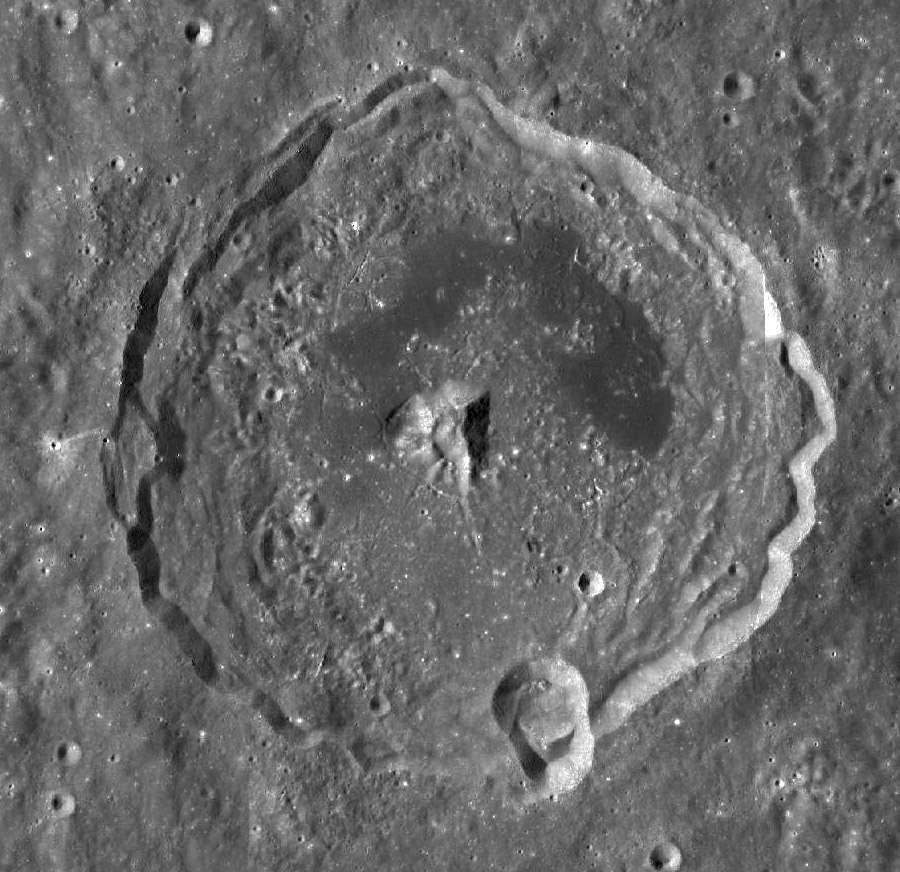Difference between revisions of "February 15, 2012"
| Line 16: | Line 16: | ||
<br /> | <br /> | ||
<hr /> | <hr /> | ||
| + | <!-- Removed reference to store page --> | ||
| + | </div> | ||
| + | ---- | ||
| + | ===COMMENTS?=== | ||
| + | Register, and click on the <b>Discussion</b> tab at the top of the page. | ||
| + | <hr> | ||
| + | You can support LPOD when you buy any book from Amazon thru [[Support_ LPOD|LPOD]]! | ||
| + | <span style="font-size:88%"> | ||
| + | <center> | ||
| + | Contributions to http://www2.lpod.org/ are licensed under a Creative Commons Attribution No-Derivative-Works Non-Commercial 3.0 License. [http://www.creativecommons.org/licenses/by-nc-nd/3.0 http://www.wikispaces.com/i/creativecommons/by-nc-nd_3.0_80x15.png]<br> | ||
| + | </center> | ||
| + | </span> | ||
Revision as of 20:04, 31 January 2015
More Vents

image from LRO Quick Map
One of the satisfying aspects of LPOD is when its images and commentary lead to discussions of new ideas or identification of interesting landforms. In the comments about yesterday's LPOD Danny Caes pointed out a very similar lip vent near Sulphicius Gallus. And in an email to me Anders Nygaard reported that he was inspired to look for vents and found one on the floor of Schlüter. Anders mentioned that he hadn't seen this mentioned before and I don't remember it either. A look at the excellent Lunar Orbiter IV image shows why the vent was missed: the LO image has a lower Sun and the central peak's shadow covered the vent. This is different from the lips style vent, it seems to be more like a widening of a rille where pyroclastic eruptions occurred. Don't get confused - the large expanse of dark material is mare lavas, the ash is just a small, slightly darker region around the vent. If you look closely at the high Sun Clementine view of Schlüter you may notice another small black spot of pyroclastics. It occurs half way between the central peak and the small bright crater in the 4 o'clock position. On the image above - which you can increase the size of by clicking option + (at least on a Mac) - you will see that at the position of the dark spot there is a small conical hill with an oval summit pit. That is another type of vent, a rare volcanic cone. More vents exist - a good place to search for more is in the pyroclastic deposits cataloged by Lisa Gaddis and colleagues, all found long before LRO mosaics provided detailed views of the surface.
Chuck Wood
Technical Details
Notice that I didn't say a word about the fascinating crater where a huge scallop chomped into southern Schlüter's rim.
Related Links
Rükl plate 39
COMMENTS?
Register, and click on the Discussion tab at the top of the page.
You can support LPOD when you buy any book from Amazon thru LPOD!
Contributions to http://www2.lpod.org/ are licensed under a Creative Commons Attribution No-Derivative-Works Non-Commercial 3.0 License. 



